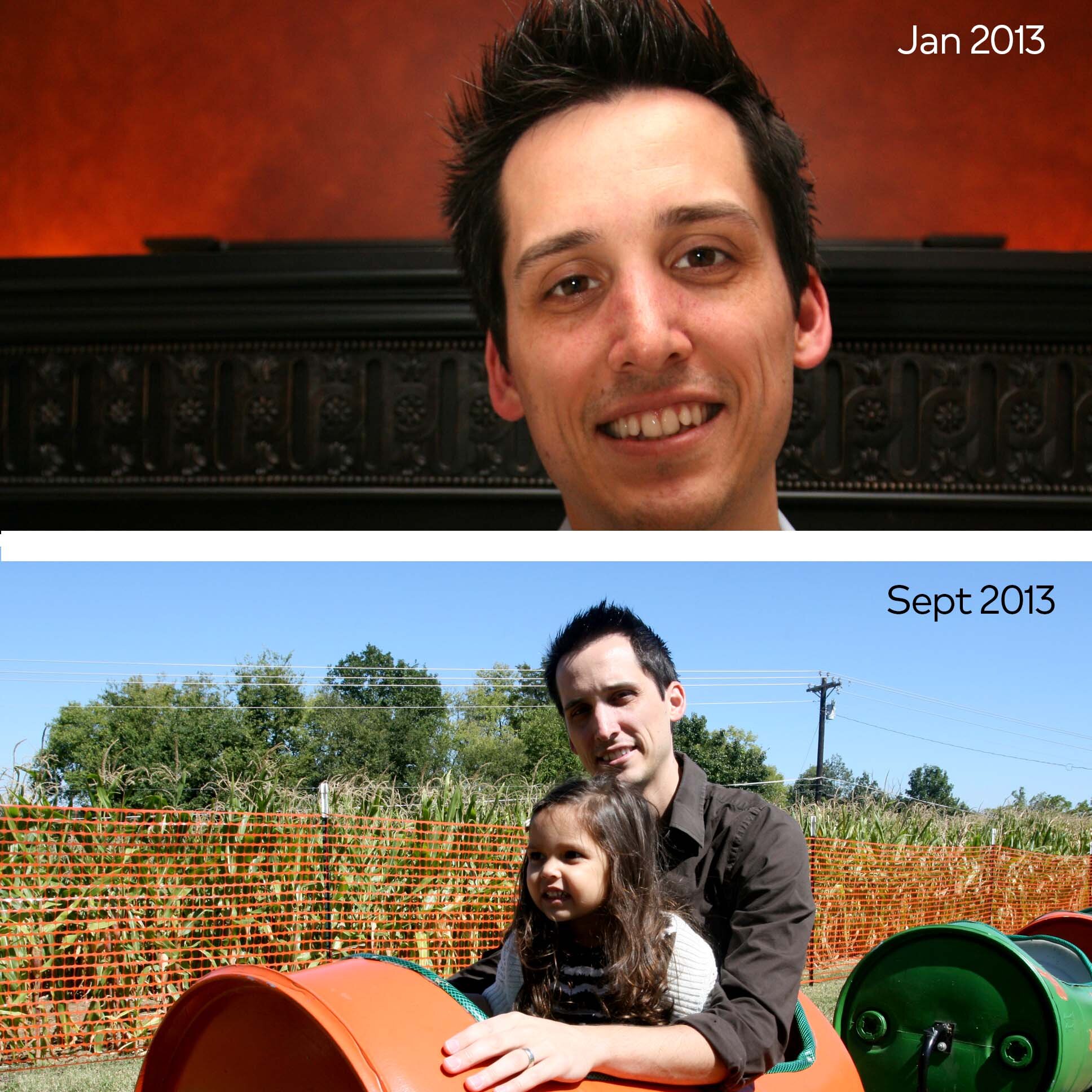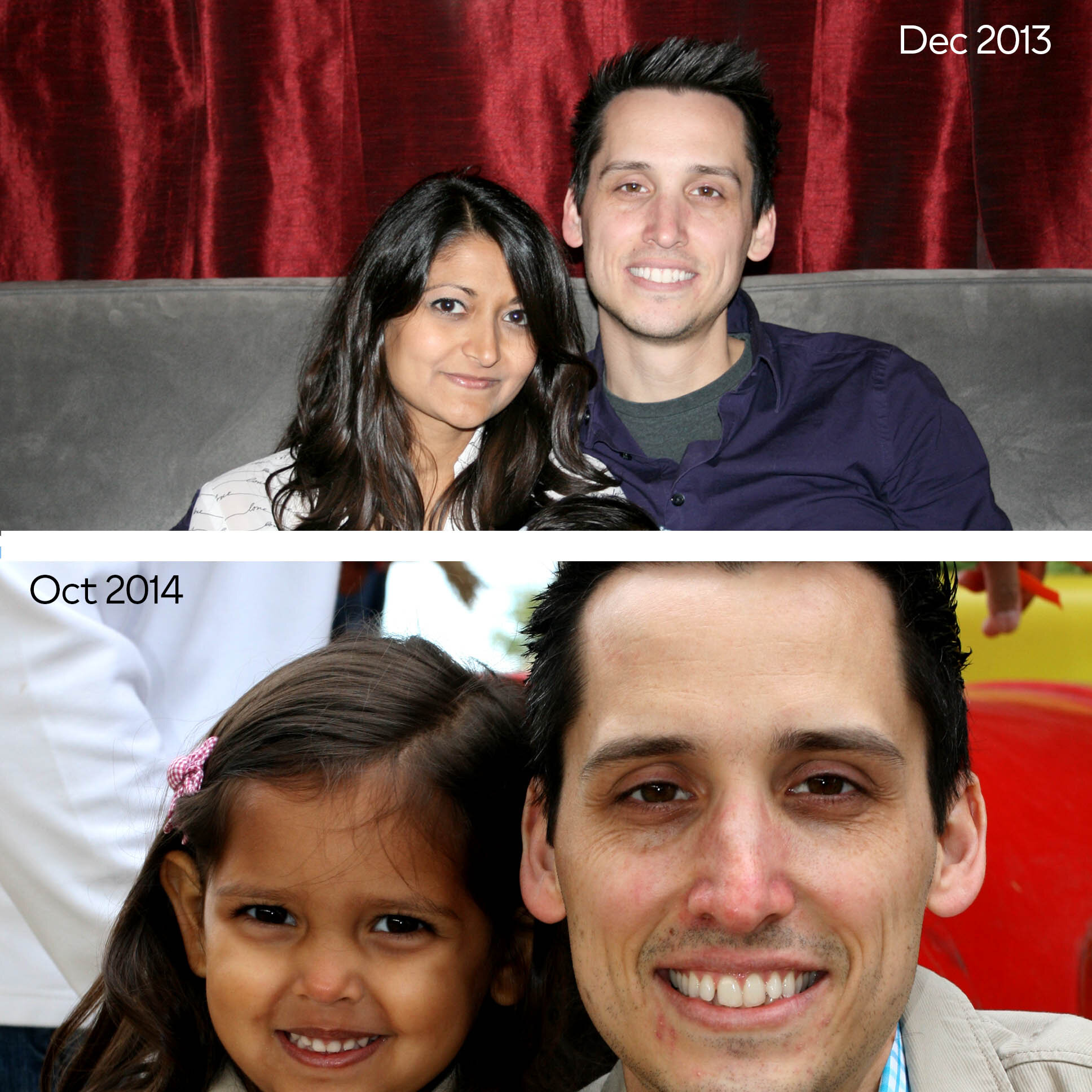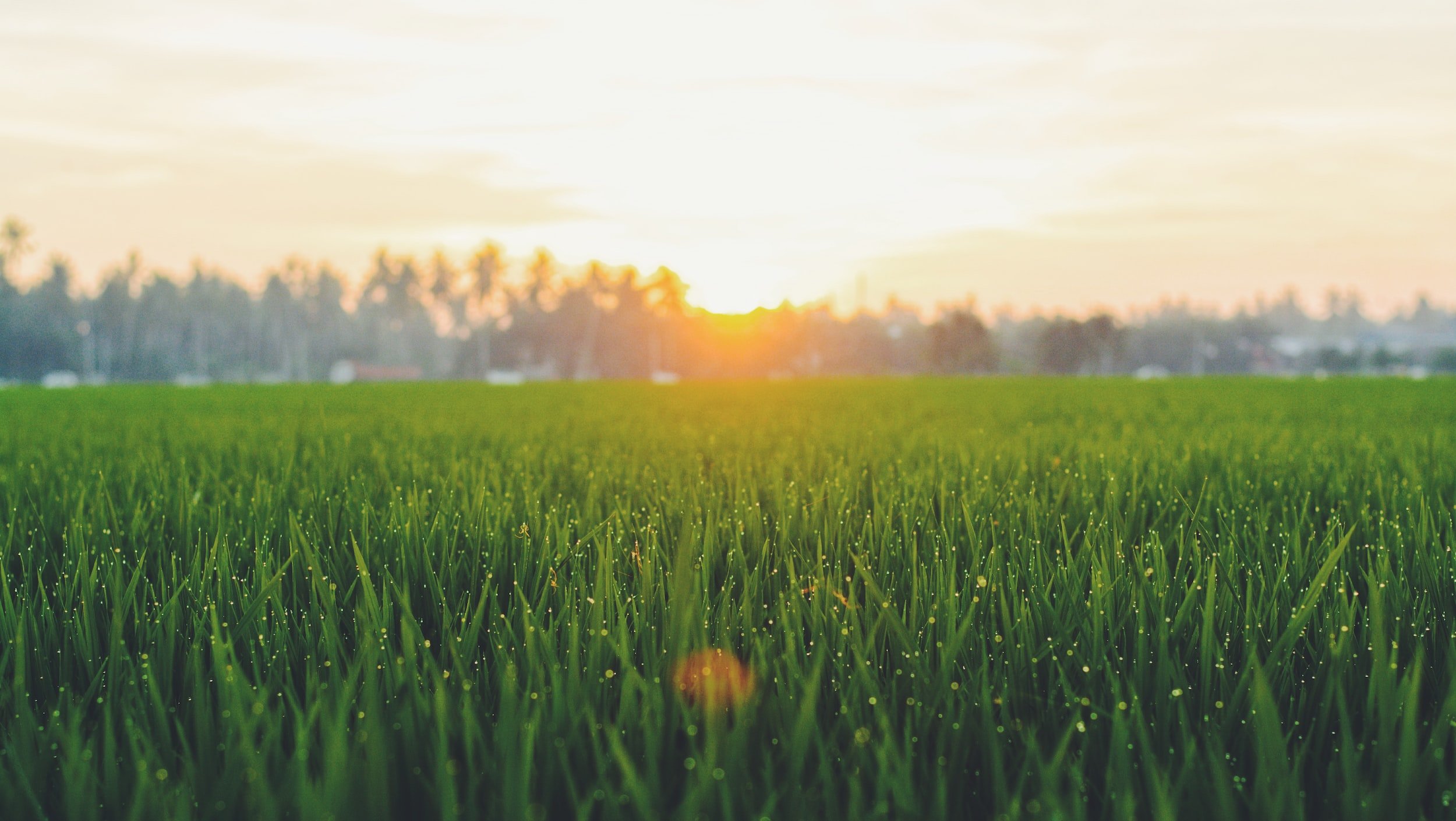Seasonal factors
Disclaimer: If you are reading this and dealing with ANY health related problems I am NOT recommending you take the same unconventional approach as I have in my battle with Crohn’s disease. Any changes you wish to make in your care plans should be done in partnership with the team of qualified healthcare providers who treat you.
How have I seen seasonal factors impact my health?
I’ve been tracking my symptoms daily for several years now and while there are certain patterns I’m seeing in my own health related to seasonal factors it is clear to me that there are MANY factors that impact my overall health and learning how each of these things impact me personally (and what I can do to avoid / minimize them) will bring me better health in the long run.
It is much harder to correlate symptoms to seasonal factors than it is to the things I eat. When I eat something repeatedly for four days I can quickly see if my consistency drops - it’s obvious. But seasonal factors build slowly over time.
With food testing I am able to stop testing as needed and retest later to see if I get similar results. With seasonal factors I can’t control when pollen starts / stops. To make things more complicated each seasonal factor only peaks once a year (over the course of a few weeks or months) - this all limits my ability to confirm theories quickly.
However, since 2008 I’ve wondered if environmental factors played a role in my health. I remember asking myself, “Why does it seem like I always flare up in the fall?” After all it was the fall of 2018 when I had my last major flare (and hospitalizations); it was between August and September in 2021 when I saw an slight unexpected drop in consistency; and it was August 2013 when I started flaring up after being in remission for 9 months following my first attempt at diet changes a year prior.
I feel confident seasonal factors have a negative impact on my health. So let’s dive in…
My overall health
A few years ago, I was looking back over old photos and I saw an interesting pattern. It seemed as if I often looked sicker, skinnier, and even more pale in pictures taken between the months of September and October. Obviously there were exceptions to this but it was still an intriguing discovery.
Purely for subjective fun, I’ve pulled together a few comparison photos for you. The photos on the bottom are all from either September or October (at the end of peak allergy season where I live) while the top “healthy” ones are from either a few months before or after peak allergy season. You can see that I generally look sicker around the same time every year but healthier again later that year or early the following year.
Even now as my health has improved I can still see a difference in how I look in September vs. other times in the year. And while I’ve come a long way in my gut health my body still feels the impacts of seasonal factors - weight loss, tiredness, anxiety, and brain fog.
Let’s look at some of the data I’ve collected over the last four years to show how seasonal factors are a burden on my overall health.
My weight:
Over the last several years I have gained a significant amount of weight. At my lowest in 2009 I was 128 pounds. My average weight in 2018 was 154 pounds. Now in 2024 my average weight hovers around 185 pounds.
I have clearly seen seasonal patterns in my weight gain and loss - the most notable of which is the weight I gain between the months of October to February. On average I gain 4.5 pounds every year during this period - these are the months where seasonal impacts are at their lowest in here in Nashville.
You’ll see in the graph below that when tree pollen hits in February my weight remains flat for several months. I‘ll then gain some weight during the summer (grass pollen season) before losing weight in August / September (peak weed season). After weed pollen tapers my weight gain picks up again.
In 2022 I lost 9 pounds during the 5 weeks ragweed was at its peak (from 185 pounds down to 176.4 pounds. In 2023 I also lost 9 pounds during peak ragweed (dropping 14 pounds from my high earlier in the year)! All of this weight loss has occurred while my GI is healthy highlighting the burden ragweed has on my body even without diarrhea being present.
Some of this weight loss is water weight and will not be permanent weight loss but I also lose some fat and muscle too. During times of peak pollen I’ve seen my ability to progress in the gym slow and at times wiping out gains I’ve made the entire year.
Thankfully during the winter I gain most of it back but it’s frustrating to lose muscle and have to rebuild it again every year.
My GI Health:
With the exception of my last major flare and hospitalization in 2018 my GI health has improved dramatically over the past several years thanks to finding over 20 ingredients (via an elimination diet) that trigger either diarrhea or GI bleeding in me. But even after eliminating my triggers and keeping my diet fairly consistent I’ve still seen a minor drop in consistency over the last several years during the months of August and September which lines up with peak weed season.
Diet changes have been by far the biggest factor in regaining my GI health but I am intrigued with how seasonal factors might play a role here as well.
My Hair Loss:
I started tracking my hair loss in 2018 after noticing I was losing more hairs than usual. Between the months of December and April I lose about 53 hairs a day on average however over the last several years at the end of peak grass season (June/July) I average an additional 21 hairs lost per day - a 40% increase. As grass pollen tapers off so does my hair loss until another spike in early November. I've even seen a pattern of a short term increase in my hair loss for a few days after we mow our lawn. Not only do I see an increase in hair loss but I also get small bumps / scabs on my scalp when grass pollen is active.
It’s one more indicator of my overall health and how seasonal factors could be impacting my body.
Other factors:
In addition to all of the symptoms I’ve tracked for the last several years there are a few new metrics that I started tracking more recently that I’ve seen impacted by seasonal factors as well. Anxiety, brain fog, and overall tiredness seem to increase (for me) during peak pollen seasons.
The graphs below show the monthly averages of three metrics I’ve tracked for the last couple of years - the three metrics are 1) energy levels 2) brain fog and 3) anxiety.
You can see from the graphs below that as ragweed season peaks in September that these all increase dramatically - it’s no wonder I had a series of panic attacks in September of 2023 - my emotions were fried. Thankfully my emotions stabilized as ragweed tapered off in October but I’ve still got a long way to go to get these metrics where I want them.
Overall when I look at my health during peak pollen season I see a major decline. Seasonal factors rob my body of energy and nutrients needed to sustain maximum health. There are many times during these seasons where I am unable to be the person I need to be to those around me and in those moments I be sure to take a few minutes to rest and recover. Granted, I do live in one of the worst places for pollen in the country - so I’m sure that doesn’t help either.
I will continue tracking the impacts of seasonal factors on my health and will look for ways to minimize their effects - the more I learn the more I’ll share. Best!
Update: November 2024
Over the past year I've documented the symptoms I see each season. This will help me accurately predict when to expect changes in my health and determine if any changes I make improve my seasonal symptoms.
Spring Symptoms (Tree Pollen)
- Dehydration
- Brain Fog
- Headaches
- Itchy Scalp (at peak pollen)
- Bloody Noses (at peak pollen)
Summer Symptoms (Grass Pollen)
- Itchy Scalp
- Brain Fog
- Dry/Itchy Eyes
- Joint Pain (at peak pollen)
- Bloody Noses (at peak pollen)
- Tired / Drained (at peak pollen)
- Anxiety (at peak pollen)
- Increased Hair Loss
- Sore Throat / Drainage
Fall Symptoms (Ragweed Pollen)
- Sadness
- Brain Fog
- Major Anxiety
- Hot Flashes / Night Sweats
- Poor Sleep
- Tired / Drained (at peak pollen)
- GI swelling (at peak pollen)
- Lower Consistency (at peak pollen)
- Muscle / Joint soreness (at peak pollen)
- Muscle Wasting (at peak pollen)
- Headaches (at peak pollen)
- Slower wound healing (at peak pollen)
- Blurry Vision / Eye Flashes (at peak pollen)
- Bloody Noses (at peak pollen)
- Kidney Pain
- Weight Loss
Winter Symptoms
- Dehydration
- Sadness
- Bloody Noses
Original Note:
In 2018 when I was in my last severe flare I decided to do an experiment. I was in peak weed season where I live in Nashville, TN and I wondered if I would see any improvement in my symptoms by getting out of the pollen. I drove 12 hours south and spent six days free from ragweed.
The day before the trip I went to the bathroom 11 times - each was bloody diarrhea. By the end of my trip however I was only going 4 times a day and the bleeding had stopped (I still had diarrhea).
In 2018 I was still eating a variety of foods I had not yet pinpointed as triggers but I still saw improvements in my GI heath just by giving my body a chance to rest from the environmental pressures it was under.
If you are interested in how to track seasonal allergens too there are several good sites/apps out there that show pollen counts. Personally I find it really easy to look at these maps from weather.com but I also use pollen.com and accuweather.com - all great resources to use!

















